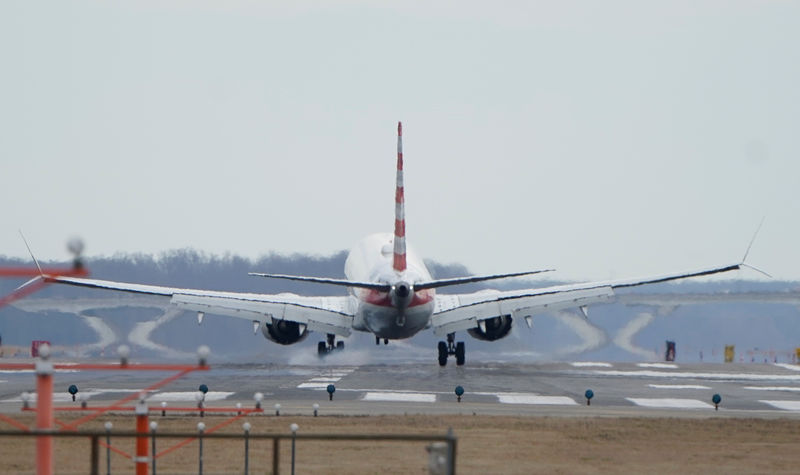By Tracy Rucinski
CHICAGO (Reuters) - Lawyers representing families of passengers killed in a Boeing 737 MAX crash in Ethiopia in March are set to issue subpoenas to Southwest Airlines (N:LUV) and American Airlines (O:AAL), according to documents seen by Reuters.
The subpoenas will be issued to the two biggest U.S. operators of the jet over the next couple of days, the lawyers separately told Reuters.
They seek to know what Boeing Co (N:BA) promised potential airline customers about flight crew training and the 737 MAX certification process, and about Boeing's communications with the two airlines following a Lion Air crash in Indonesia on Oct. 29, 2018, and before the Ethiopian Airlines crash on March 10.
They are seeking documents about 737 MAX software known as MCAS widely linked to both deadly crashes, as well as information on the aircraft's sensors.
The two crashes, both involving 737 MAX jets, killed 346 people and spurred more than 100 lawsuits against the Chicago-based planemaker.
Southwest and American declined to comment.
The 737 MAX was grounded globally following the Ethiopian crash in March, and Boeing has been working to deliver software fixes aimed at winning fresh approval for commercial flight in the fourth quarter.
Both Southwest and American have flagged a hit to profits due to the grounding of the 737 MAX, which has forced each to cancel more than 100 daily flights through early next year.
While families of the Lion Air crash victims are in settlement talks with Boeing, the Ethiopian crash victims are pursuing a jury trial.
Both cases are in Chicago federal court, where a Lion Air status hearing is taking place on Thursday.
In a court filing late Monday, Boeing said veteran litigator Dan Webb, a former U.S. Attorney and special prosecutor in the 1980s Iran-Contra arms-sales affair, had joined its legal team in the Lion Air case.
In addition to the Chicago cases, questions about how Boeing designed and developed the 737 MAX are a focus in probes by the U.S. Department of Justice and a Congressional committee.
The planemaker has said it was sorry for the lives lost in both crashes but stopped short of admitting liability in how it developed the 737 MAX or the flight control software.

Last week, an international aviation panel criticized U.S. regulators and Boeing over the certification of the plane.